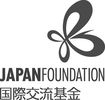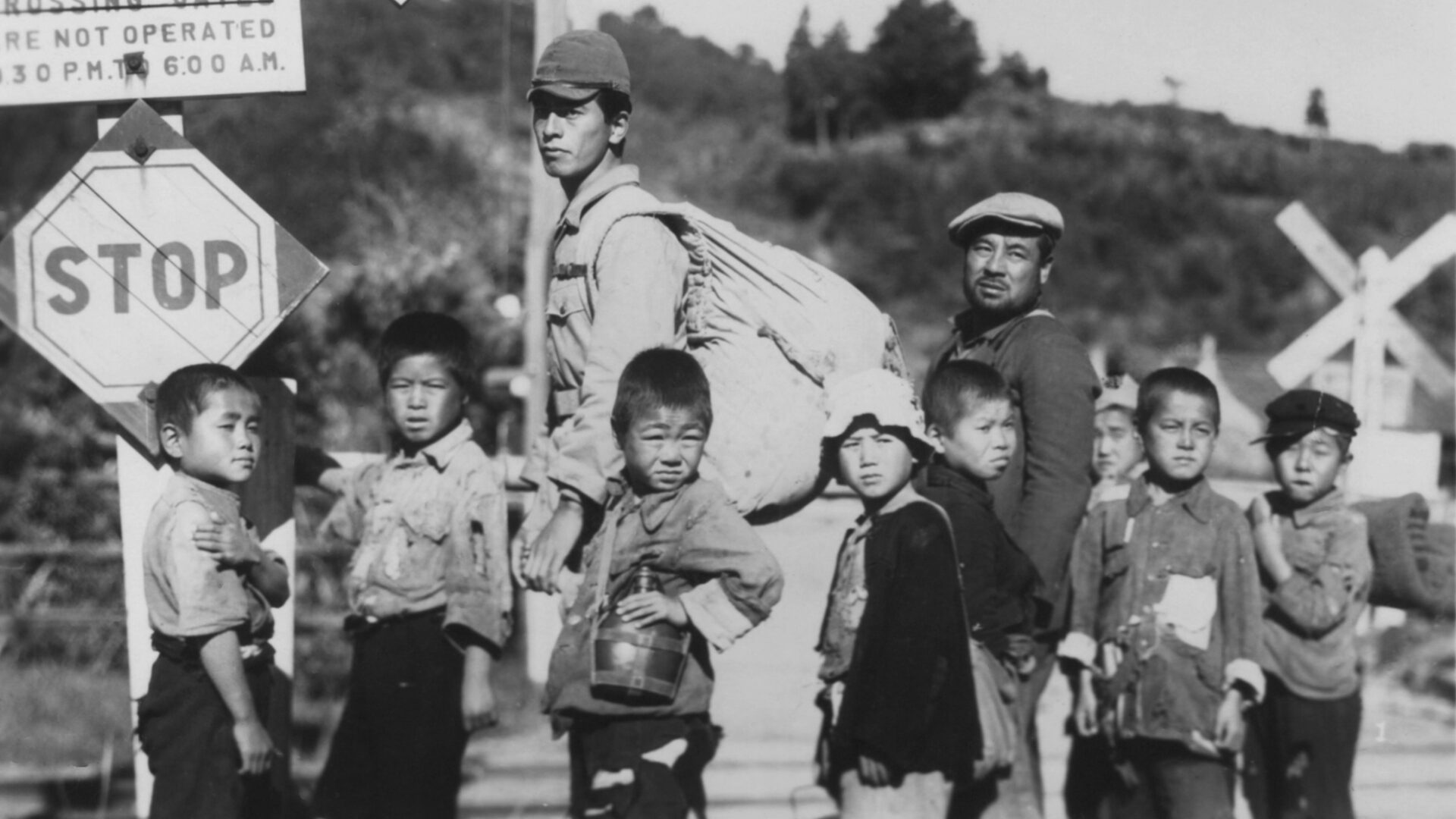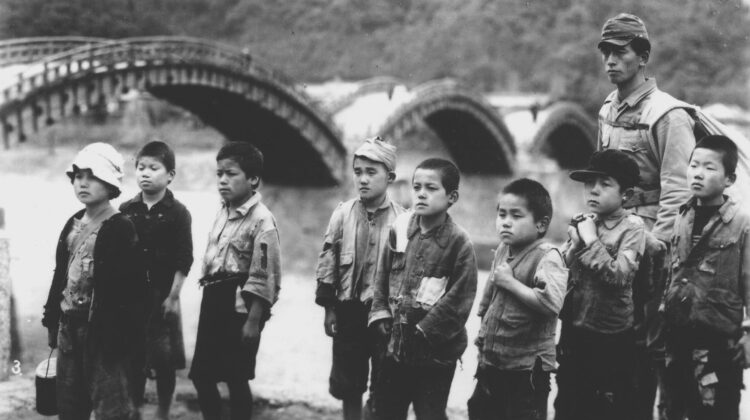Four Postwar Films by Shimizu Hiroshi
- Children of the Beehive
- 蜂の巣の子供たち
- Japan1948
- Shimizu Hiroshi
- 86 35mm
- NR
- Four Postwar Films by Shimizu Hiroshi
Screening Dates
- June 14, 2024 6:30
- June 22, 2024 8:30
“Certainly the masterpiece of Shimizu’s postwar career, it is also one of the outstanding neorealist films.”
Alexander Jacoby, Senses of Cinema
An astonishing work of pathos and postwar social realism, the first independent picture of Shimizu Hiroshi masterfully plays to the director’s strengths in its blend of travel, tracking camerawork, and the orbits of children. The gendai-geki road picture, made following the director’s exit from studio Shochiku, concerns a group of vagrant war orphans who learn the value of honest work by clinging to a repatriated soldier. A pivotal scene involving a boy clambering up a cliffside while carrying his friend is a tour de force of emotion, technical prowess, and physicality on the part of the child actors. (Renegade youth-movie auteur Somai Shinji clearly took notes). The children, and project as a whole, were inextricably tied to Shimizu’s personal life: the nonprofessional cast includes eight real-life orphans the director adopted after the war; the “beehive” of the title was his nickname for domesticity with the “buzzing” kids.
In Japanese with English subtitles
The June 14 screening will be introduced by Sharon Hayashi, chair and associate professor in the Department of Cinema & Media Arts at York University.
“Whatever sentimentality the story courts is held in check by the film’s formal accomplishments.”
James Quandt, TIFF Cinematheque

Media
Note
Sharon Hayashi is chair and associate professor in the Department of Cinema and Media Arts at York University, Toronto. Dr. Hayashi specializes in Japanese cinema and media, digital mapping, and archives. She has published essays on the travel films of Shimizu Hiroshi, Japanese pink cinema, and the resurgence of artistic and political collectives in urban and rural Japan.

